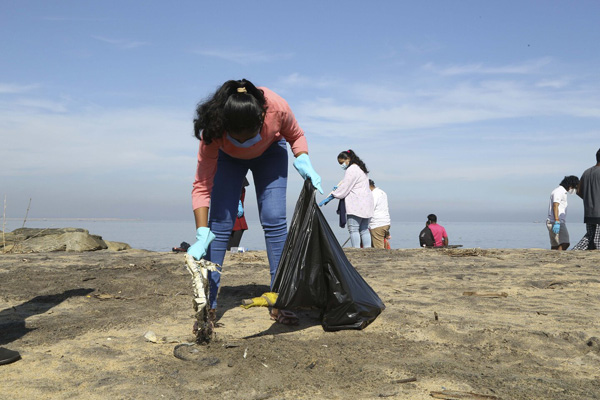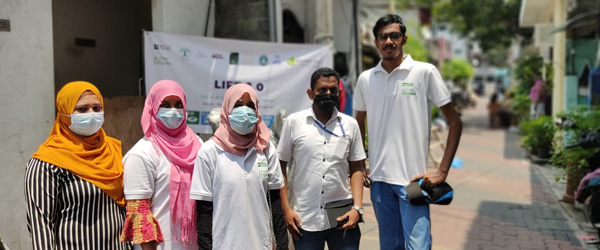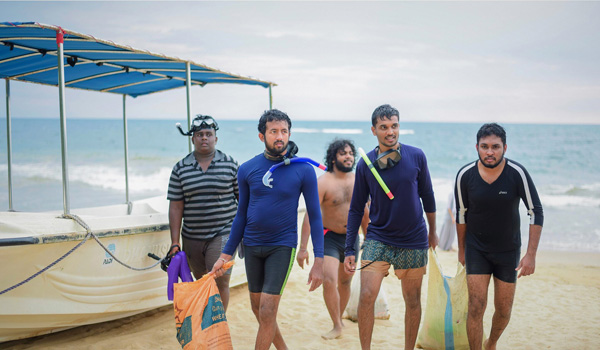The Active Citizens (AC) programme – an initiative for mobilizing social action for climate change was launched by the British Council early this year in collaboration with Muslim Aid Sri Lanka.
The programme aims to achieve community cohesion and development through the capacity building of young leaders for civic engagement and volunteering towards mitigating climate change and environmental protection.
Six novel projects were carried out in the Colombo District by the young Active Citizens.
The ‘Throw to Grow: Seed Balls for Climate Action’, adapted from renowned Japanese environmentalist, Masanobu Fukuoka, aimed to increase urban and semi-urban forestry by propagating manufactured seed balls containing different types of seeds, fertilisers and growth components. Youth volunteers set out to propel 5000 seed balls and dispersed them in uninhabited landscapes along the Negombo Lagoon to Kelani River to address the rapid depletion of the forest cover.
The ‘Youth Against Debris’ (YAD) project works to reduce plastic litter and raise awareness via social media about ocean pollution. Currently Sri Lanka ranks fifth globally in terms of marine plastic pollution. As part of this initiative, the shallow waters and beaches in the Colombo District were cleaned by scores of young volunteers with great enthusiasm.
‘Waste-Ed’, a similar initiative to YAD, aimed to create awareness on waste management, recycling and upcycling waste through beach clean-ups. The Active Citizens donated tools and waste bins to the Beach Management to support future efforts.
Through the ‘Life 2.0’initiative, roofs were painted white in the Kettarama region, to neutralize excessive heat. In addition, waste management and canal clean-up practices were discussed among the densely populated communities. This social action project was effective in uniting the community to support the cause and, more importantly, one another.
Said one participant Janith Mahela Ittapana, “While climate action was the focus of this initiative, it also helped different ethno-cultural communities in the Kettarama locality to bond and work together towards a singular mission. Like cricket, we are confident, eagerness to minimize global warming will continue to bind Sri Lankans together as one family.”
‘Waste Patrol' focused on actively identifying gaps in current waste management protocols and propose solutions. The project established platforms for discussion by using online research integrated webinar approaches. The first webinar targeted youth from diverse communities to understand the significance of waste management and its contribution to maintaining safer environments.
A participant of the ‘Waste Patrol’ social action initiative, Fahim Aslam said: “This project was a cross-country collaborative effort with Rotaract Clubs of Sri Lanka and India. We conducted a series of webinars and partnerships to promote better mechanisms for waste disposal and management in Colombo and the outskirts particularly where garbage, or management of same, has become a key challenge. The participation was remarkable and enthusiasm among participants was truly inspiring.”
The sixth project, ‘Life below Water’, addressed water pollution in urban areas which is a critical environmental crisis faced by the local communities. Inspired by SDG 14, the volunteers raised awareness via social media campaigns by collaborating with authoritative bodies and influencers.
 |
| Project Wast-Ed SAP in-action |
 |
| Project - Life 2.0 SAP in-action |
 |
| A team from Youth Against Debris SAP in-action |
Leave Comments